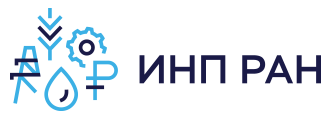About the conference
About the 27th Inforum World Conference
Materials
2 September 2019
Maurizio Grassini — A New Star is Born
Nikita Suslov — Model of Diversity: Systematic Analysis and Application to Russian Economy
Maximilian Banning — Modeling of Energy Efficiency and the Rebound Effect in PANTA RHEI
Andrey Kolpakov — Understanding the criteria for Russian climate policy: Energy and Economy modeling
Patricio Aroca— Impact Analysis of Copper Price Super Cycle on Chilean Growth
Vasiliy Ustinov — Interindustry Relations of Metallurgy and Metal Consumption in the Russian Economy
3 September 2019
Shantong Li, Jue Guo — The economic structure change and industrial upgrading in China — Based on IO analysis
Raphael Uzyakov — The impact of the structural factor on economic growth
Henryk Gurgul, Łukasz Lach — Multidimensional approach to measuring eco-efficiency in generalized IO models
Douglas Meade — The Supply Side of Health Care in a Dynamic Context
Ines Thobe — Impacts of a more Sustainable Consumption
Tatyana Novikova — Application of input-output models for investment project evaluation: the economic efficiency approach
David Mullins, Zanele Kayumba — Detailed Projection of South African Economy – Two Stage Approach Based on the South African Inforum Model (SAFRIM)
Asiya Brusentseva — Current Version of the Russian Interindustry Model (RIM)
Aleksander Baranov, Victor Pavlov — Evaluation of the impact of increasing the oil production of a major oil producing company on the development of Russian economy using the dynamic input-output model
Jurand Skrzypek — Transition to a low-emission economy in Poland in view of the results of multisectoral energy model
5 September 2019
Toshiaki Hasegawa — Regional Market Integration and Trade in Value-Added
Rossella Bardazzi, Leonardo Ghezzi — Bilateral trade elasticities for Russia. An Inforum-type analysis
Anton Moiseev — Financial framework for IO-models convergence
Alexander Shirov — Interregional balance on the basis of rail transport data
Ksenya Savchishina — Multiregional I-O Model: Baseline Scenario and Checking of Results Accuracy
Chen Pan — The construction of Chinese provincial multi-regional input-output tables
Maxim Romanov — The impact of large-scale events on the development of territories (on the example of post-Olympic Sochi)
Yuliya Pankova — Assessment of Prospects for Formation of the Arctic Transport Corridor (Using Multi- regional Input-Output Model)
Marc Ingo Wolter — Detailed labour market modelling with INFORGE
Ekaterina Edinak, Vadim Potapenko — Forecast of Russian Interregional Migration Flows
Dmitriy Polzikov — Assessing contribution of a sector to GDP: Input-Output approach
Sergey Milyakin — Modeling of IO coefficients for the Russian economy

